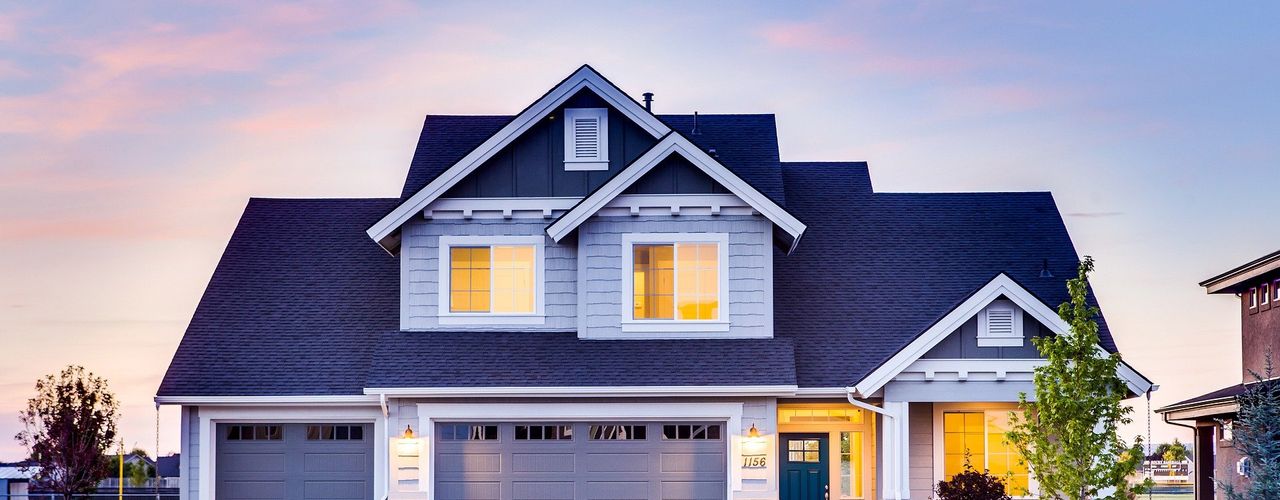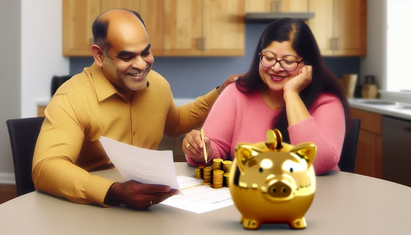Do Mortgage Lenders Treat Second Homes Differently?
Written by:
Andrew Tavin
Andrew Tavin
Personal Finance Writer
Andrew Tavin a contributing writer for Own Up.
See full bio
Fact Checked by:
Mike Tassone
Mike is a Co-Founder and Chief Operating Officer of Own Up. He has expertise in all areas of residential lending, having led operations for a top 40 lender in the United States.
See full bio

If you have some extra money saved and already own a primary residence, you may be considering another journey into the real estate market. Whether you’re looking for an investment opportunity, a source of passive income, or a vacation home, you may wonder whether a second home loan will be easier or harder to secure than the first.
The answer is: It depends.
Overall, though, you’ll probably face a more challenging approval process on your second application. If the second property’s primary purpose is to serve as an investment property, lenders will consider the potential rental income; however, they will also likely implement stricter financial requirements since the homebuyer will be managing two sets of monthly mortgage payments.
Why Make a Second Home Purchase?
Even if you already own a primary home, there are many advantages to buying another property.
For example, you can rent out an investment property to earn passive income or renovate a home in an effort to “flip it” (sell it for more than you paid for it).
Of course, you could also buy a new home to use as a vacation property for you and your family. However, keep in mind that it will be more difficult to qualify for a mortgage if you aren’t planning to use the new property as an income source.
What Are the Second Home Mortgage Requirements?
The main purpose of the mortgage approval process is for a lender to determine whether you’re capable of covering your mortgage payments. Therefore, it shouldn’t come as a surprise that your existing mortgage payments can impact your ability to be approved for an additional mortgage loan.
If this is not your first mortgage, you’ve likely been through the approval process before. You may remember having your personal finances evaluated, including your credit score and debt-to-income (DTI) ratio.
Your current mortgage will factor into your DTI, which is one reason it can be more difficult to get approved for a second property mortgage – especially if you aren’t planning to use the home as an investment property to generate income.
Certain programs, such as federal housing administration (FHA) loans, are typically not available for secondary property purchases, so you’ll need to stick to a conventional loan.
One other thing to consider when purchasing a second property is the required down payment amount or the maximum loan-to-value (LTV) ratio that lenders will allow. The LTV looks at the total amount of borrowing a lender will allow relative to the purchase price and can be calculated by subtracting the down payment from the purchase price. Second homes require a 10% down payment minimum or a maximum LTV of 90%, while investment properties require down payments between 15% and 25% (75% to 85% maximum LTV), depending on how many units the property has. These are higher than the 3% down payment minimums typically required on primary residences
Will Lenders Consider Rental Income for Mortgage Qualification?
Lenders will consider potential rental income during the mortgage approval process as long as the property in question meets certain requirements.
The property you’re purchasing or refinancing must be one of the following:
- A two- to four-unit principal residence in which the borrower occupies one of the units.
- A one- to four-unit investment property.
Even if it’s a qualifying property, according to the above rule, there are many additional calculations a lender will make to determine the potential income, and they will adjust the mortgage rates and requirements accordingly.
“If you plan to rent out the second property, lenders may factor in the potential rental income,” acknowledges Jonathan Feniak, General Counsel at Wyoming LLC Attorney.
“However, they usually only consider a percentage (around 75%) [of the potential rental income] in light of possible vacancies or unexpected maintenance costs.”
Feniak says that applicants will need to prove they have significant savings to cover the additional mortgage payments, property taxes, mortgage insurance, closing costs, and other unforeseen costs related to the new property.
Also, remember that owning a rental property can come with costs beyond those you pay for your current home. On top of homeowners insurance, which you’re used to paying on your primary residence, you’ll likely also need additional insurance for the rental property. Additionally, depending on the size of the property and your availability, you may want to hire a professional to handle property management and leases.
How Can You Increase Your Chances of Being Approved for an Additional Mortgage?
Even if you initially struggle to qualify, there are certain steps you can take to improve your chances of being approved for a second mortgage with reasonable interest rates.
“A down payment of at least 10% is usually necessary for a second home,” says real estate businessman and newspaper columnist Sal Dimiceli. “However, if the application lacks strength, such as [showing] a lower credit score or smaller cash reserves, the down payment requirement might increase to 20% or more.”
Your choice of property can also make a big difference in whether you receive mortgage loan approval, and if you do, the rate you receive. While it’s a good idea to apply for mortgage preapproval to get a sense of your loan eligibility criteria, it’s possible that the situation may change once the lender sees the specific property and purchase price. For example, choosing a popular travel destination may appear more lucrative to a lender versus an unfavorable location.
If the property is in a seasonal vacation spot, the lender will take into account whether there will only be occupancy during part of the year as opposed to year-round.
One of the most effective ways you can raise your chances of mortgage approval is by first improving your personal financial situation and applying with a higher credit score.
“If one pays off existing debts and works to raise their credit score in advance, they will have the best chance of obtaining a cheap second home mortgage rate,” Dimiceli says.
Check Out All Your Mortgage Options
While there are differences between acquiring a primary and secondary property, you can apply many of the same lessons you likely learned from your first-time homebuyer journey into homeownership. One of the most important lessons is to explore all of your financing options before signing on to any mortgage.
“Examine offers from three to five different mortgage lenders,” Dimiceli suggests. “Remember to contrast the annual percentage rate (APR) and fees charged by each lender with the quoted mortgage rates.”
Where should you begin? A good first step is to contact a real estate agent who specializes in investment or rental properties. They can help guide your search and provide advice during the mortgage underwriting process.
The Bottom Line
It may turn out that a second property is not in the cards, at least for the moment. While that can be disappointing, it’s important you’re making a solid investment rather than taking on bad debt.


